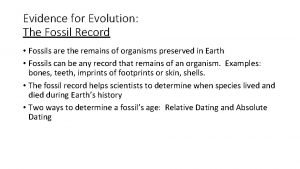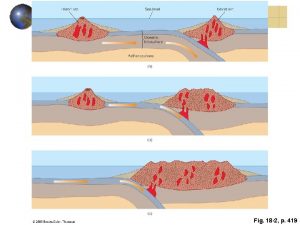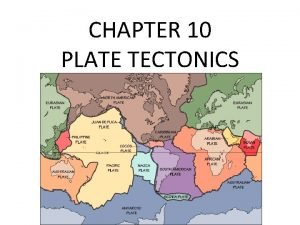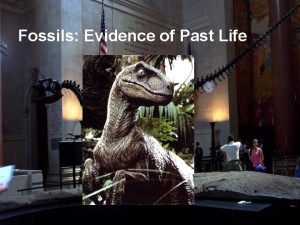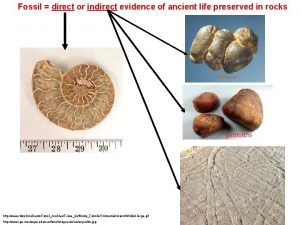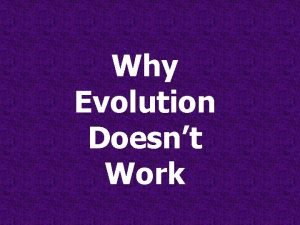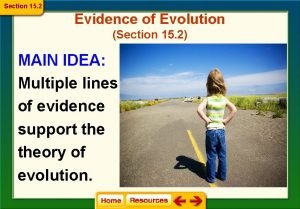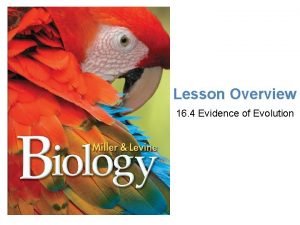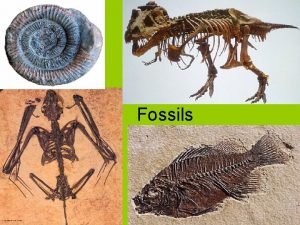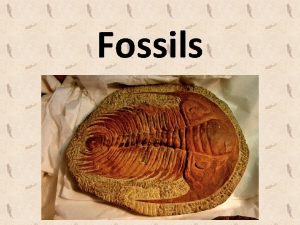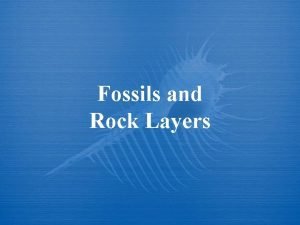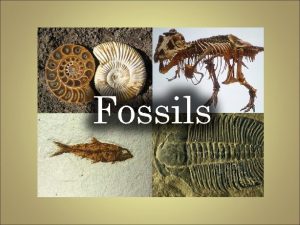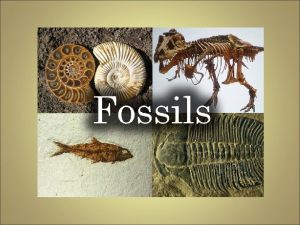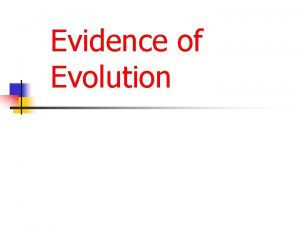Evidence for Evolution FOSSILS Fossils are preserved parts










- Slides: 10

Evidence for Evolution

FOSSILS ü Fossils are preserved parts of animals, plants, and other organisms from the distant past ü They show CHANGE OVER TIME

Radioactive elements in:

Wikipedia Explains…. ü Most chemical elements are stable: If they are not part of a chemical reaction, they do not change. ü Chemical elements are made of atoms. In stable elements, the atom stays the same. ü In the 19 th century, Henri Becquerel discovered that some chemical elements have atoms that change: During their change they send out a (radioactive)particle. ü In 1898, Marie and Pierre Curie called this phenomenon radioactive decay.

Fossil Age – Radioactive Decay The half-life of a substance is the time it takes for half of the substance to decay

Vestigial Structures that have lost their use through evolution ü provide evidence for evolution because they suggest that an organism changed from using the structure to not using the structure, or using it for a different purpose ü common ancestor! ü Ex: Penguins using wings to swim, not fly. ü Ex: Appendix, wisdom teeth, tail bone ü

Homologous Structures ü structures that occur in different species that originated by heredity from a common ancestor.

Evidence from Embryos Gill slits Common ancestor!

DNA similarities ü Molecular clocks are used to determine how closely two species are related by calculating the number of differences between the species' DNA sequences or amino acid sequences. ü The fewer the differences, the less time since the species split from each other and began to evolve into different species ü Ex: All organisms that use oxygen have the enzyme cytochrome c.

Types of Evolution CONVERGENT NOT from recent common ancestor Look similar because evolved to live in the SAME environment. DIVERGENT Came from COMMON ANCESTOR. Look different because they evolved to live in different environments.

